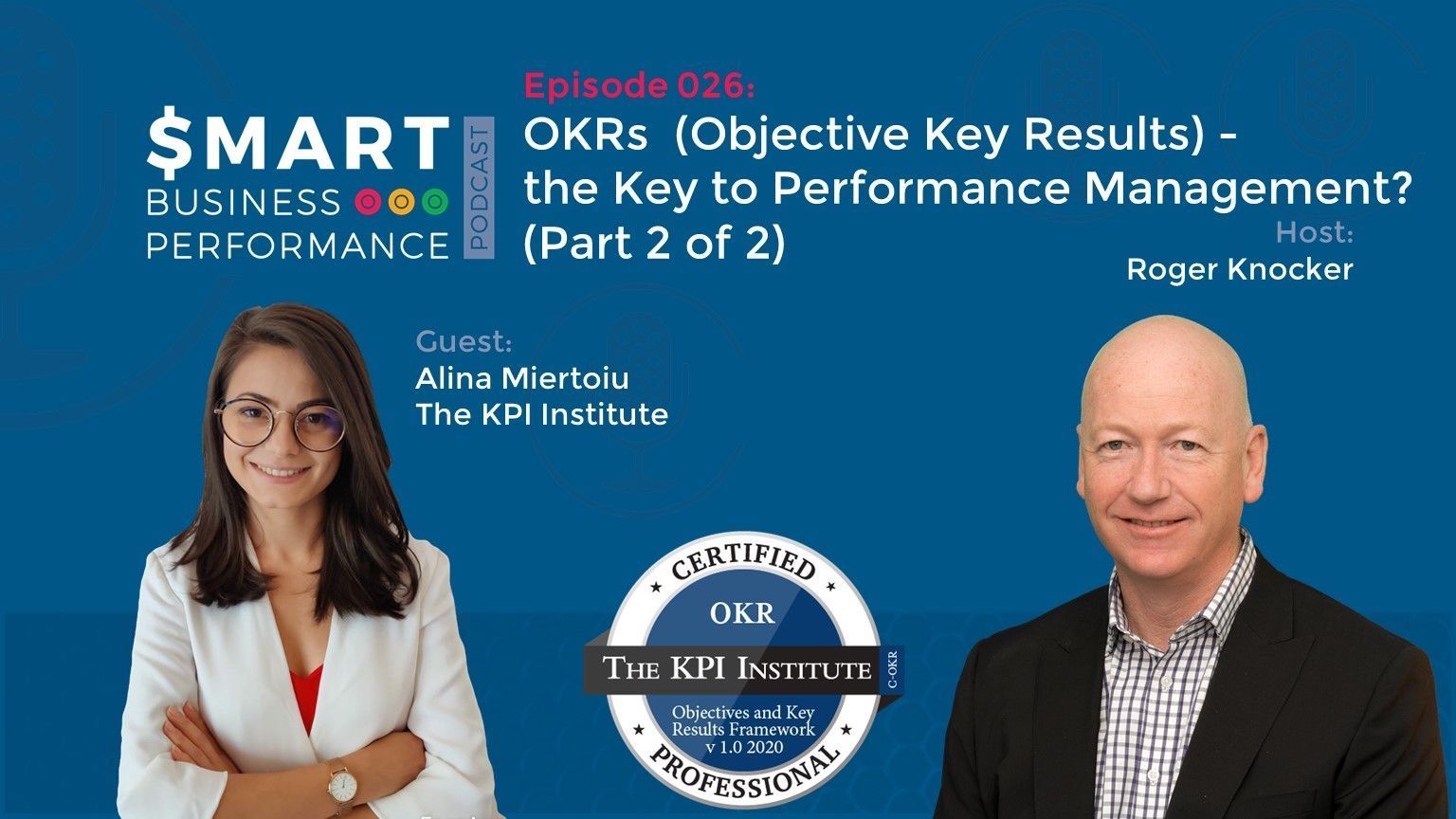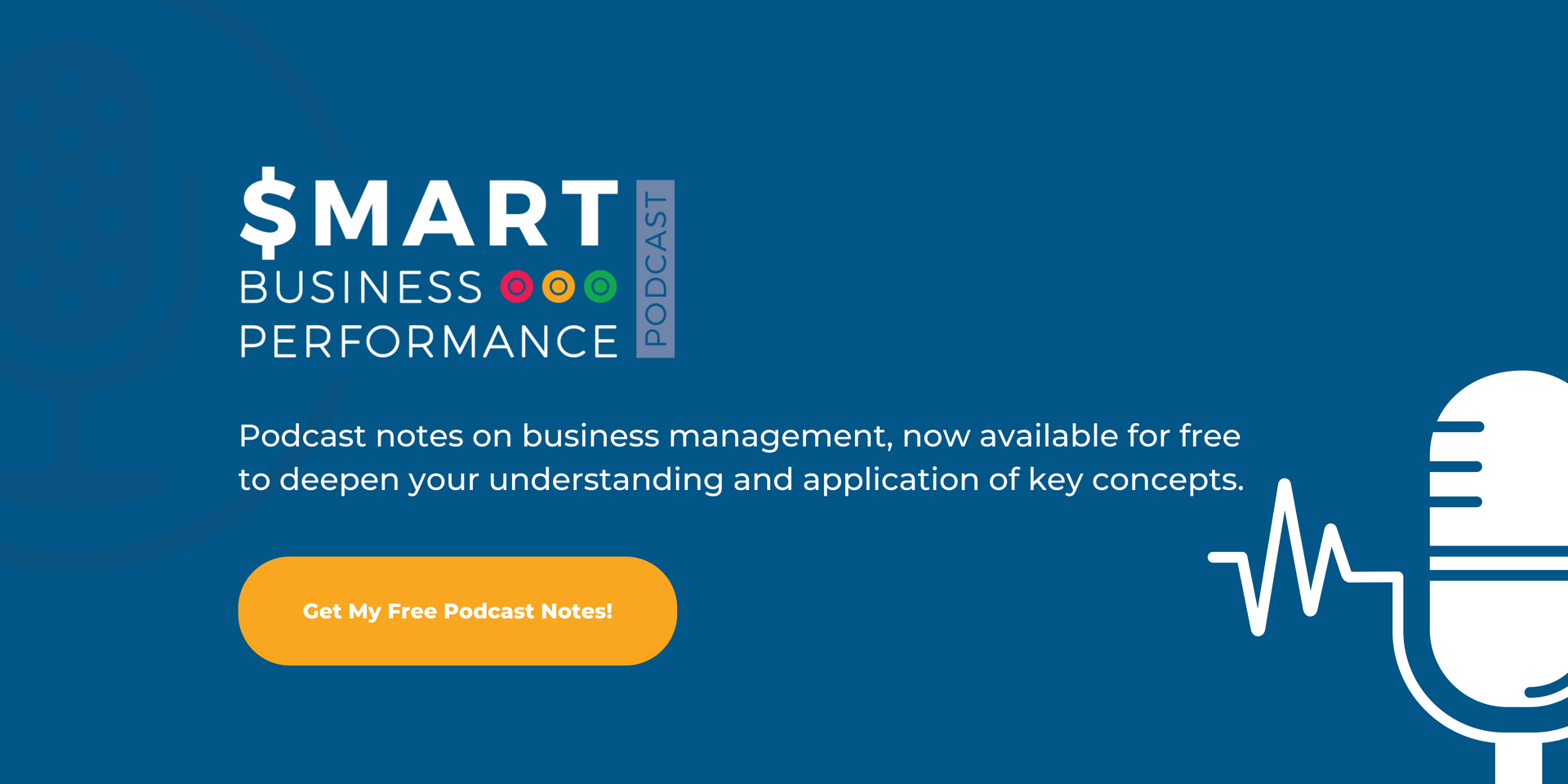SBP026: OKRs (Objective Key Results) the Key to Performance Management? Part 2of 2
Roger Knocker • January 27, 2024
SBP026: OKRs (Objective Key Results) the Key to Performance Management? Part 2of 2

In this episode of the Smart Business Performance Podcast, Roger talks with Alina Miertoiu.
Alina is the OKR Product Manager and a Senior Management Consultant at The KPI Institute. She has a professional background in business research, process improvement and management consulting, being involved in international strategy and performance-related projects for clients from various industries, including IT, utilities, healthcare, venture capital, financial services and manufacturing.
Starting with the basics about OKRs, they end up giving some powerful tips and tricks on how you can use OKRs to boost your business.
Tune in now and make sure to take away the notes with you!
[01:10] A snap recap of the previous episode
[03:03] Link it back to the vision and strategy
[14:16] Can OKRs and traditional KPIs co-exist?
[22:21] The Topic of Cadence
Special Reminder:
Check out the first episode with Alina and make sure to share your feedback with Alina
Connect with Alina:
On LinkedIn Email her at alina.miertoiu@kpiinstitute.com https://kpiinstitute.org/
Where can we find out more information?
OKR whitepaper written by Alina Miertoiu from the KPI Institute
If you enjoyed this episode of the Smart Business Performance Podcast, then make sure to subscribe to our podcast.
Alina is the OKR Product Manager and a Senior Management Consultant at The KPI Institute. She has a professional background in business research, process improvement and management consulting, being involved in international strategy and performance-related projects for clients from various industries, including IT, utilities, healthcare, venture capital, financial services and manufacturing.
Starting with the basics about OKRs, they end up giving some powerful tips and tricks on how you can use OKRs to boost your business.
Tune in now and make sure to take away the notes with you!
Conversation Highlights:
[01:10] A snap recap of the previous episode
- OKR is a goal-setting framework for defining and tracking objectives and their outcomes.
- The benefits of OKRs
- Objective v/s Key Result
- OKRs value purpose over performance.
- OKRs are more suited for a very innovative and fast-changing environment. They work better in a structured organisation.
[03:03] Link it back to the vision and strategy
- Settings up Individual OKRs
- You need to have 3 to 5 objectives and key results to measure each one of them. Alina doesn’t recommend the OKRs to focus mainly on the numbers.
- Try to set priorities rather than going for the numbers.
- What about the big organisations?
-
- If you are doing the same thing, you won’t get different results. Aspirational goals are the best way to know what we can do to have different results!
- Make sure to give your employees a safety blanket.
- What happens after you achieve your goal? How do you sustain your success?
- Balance the hygiene metrics with future-focused OKRs
[14:16] Can OKRs and traditional KPIs co-exist?
- With the OKRs, you are just trying to see what extra values and involvement they can bring.
- Can everyone use individual OKRs?
- If you want to have integrated OKRs, then you need to have approval.
- A story to take a lesson from…..
[22:21] The Topic of Cadence
- Is it a necessity to check your OKRs?
- You will need to readjust the path in order to achieve your goals.
- “A review doesn’t need to be a formal 3-hour long discussion as long as we have an informal short chat and we are in agreement.”
- Where does the agile framework meet the OKRs?
- A word of gratitude.
Special Reminder:
Check out the first episode with Alina and make sure to share your feedback with Alina
Connect with Alina:
On LinkedIn Email her at alina.miertoiu@kpiinstitute.com https://kpiinstitute.org/
Where can we find out more information?
OKR whitepaper written by Alina Miertoiu from the KPI Institute
If you enjoyed this episode of the Smart Business Performance Podcast, then make sure to subscribe to our podcast.




